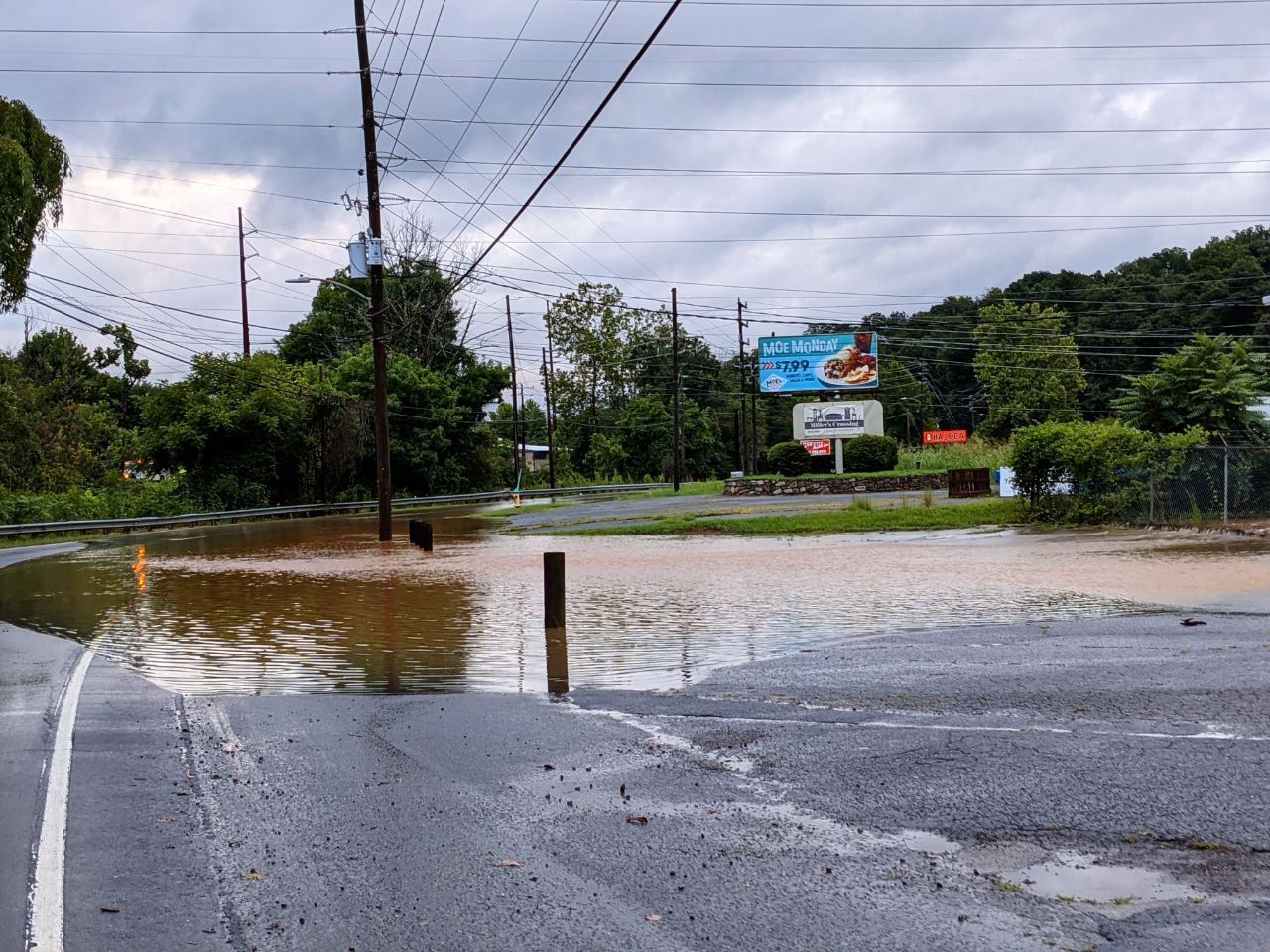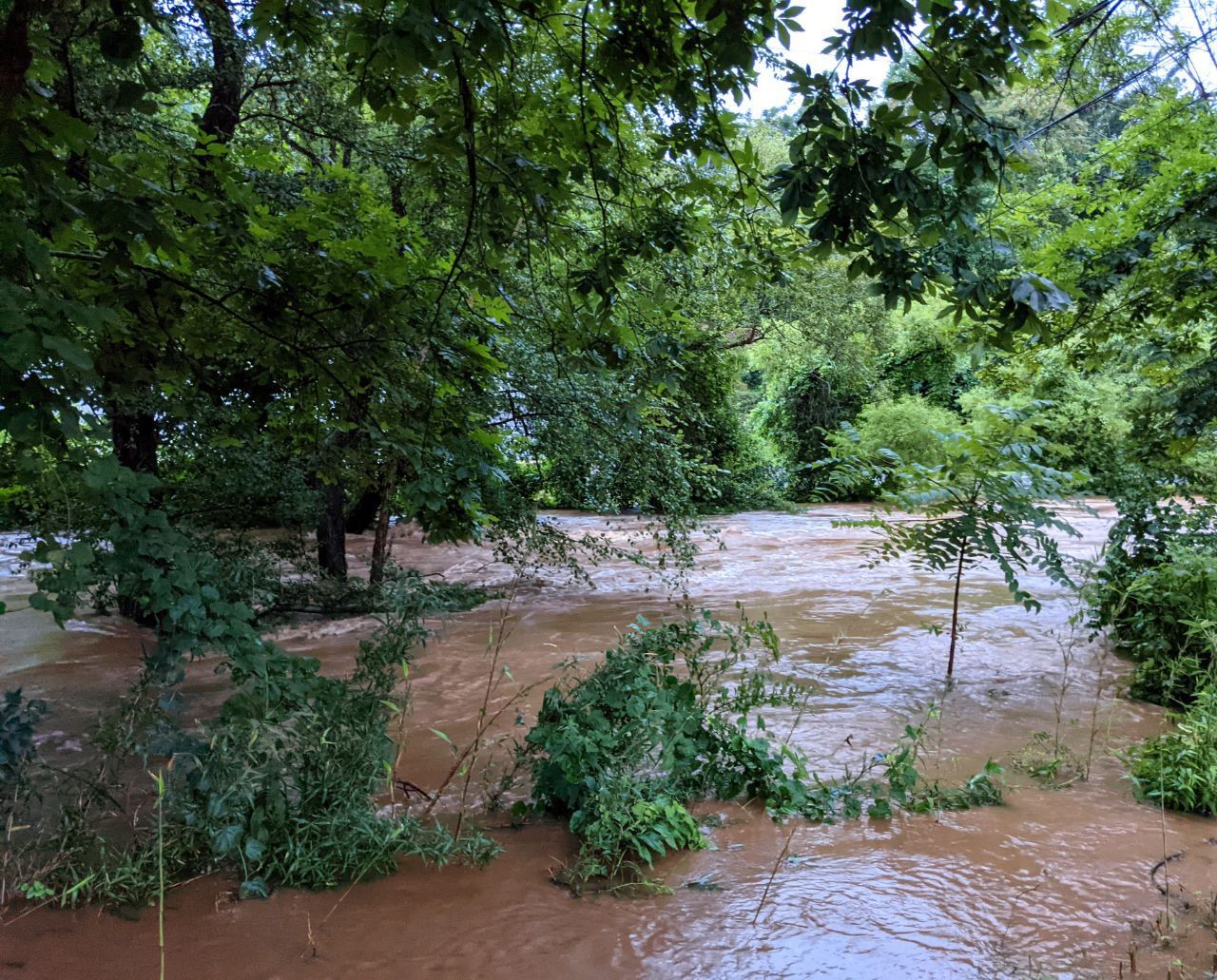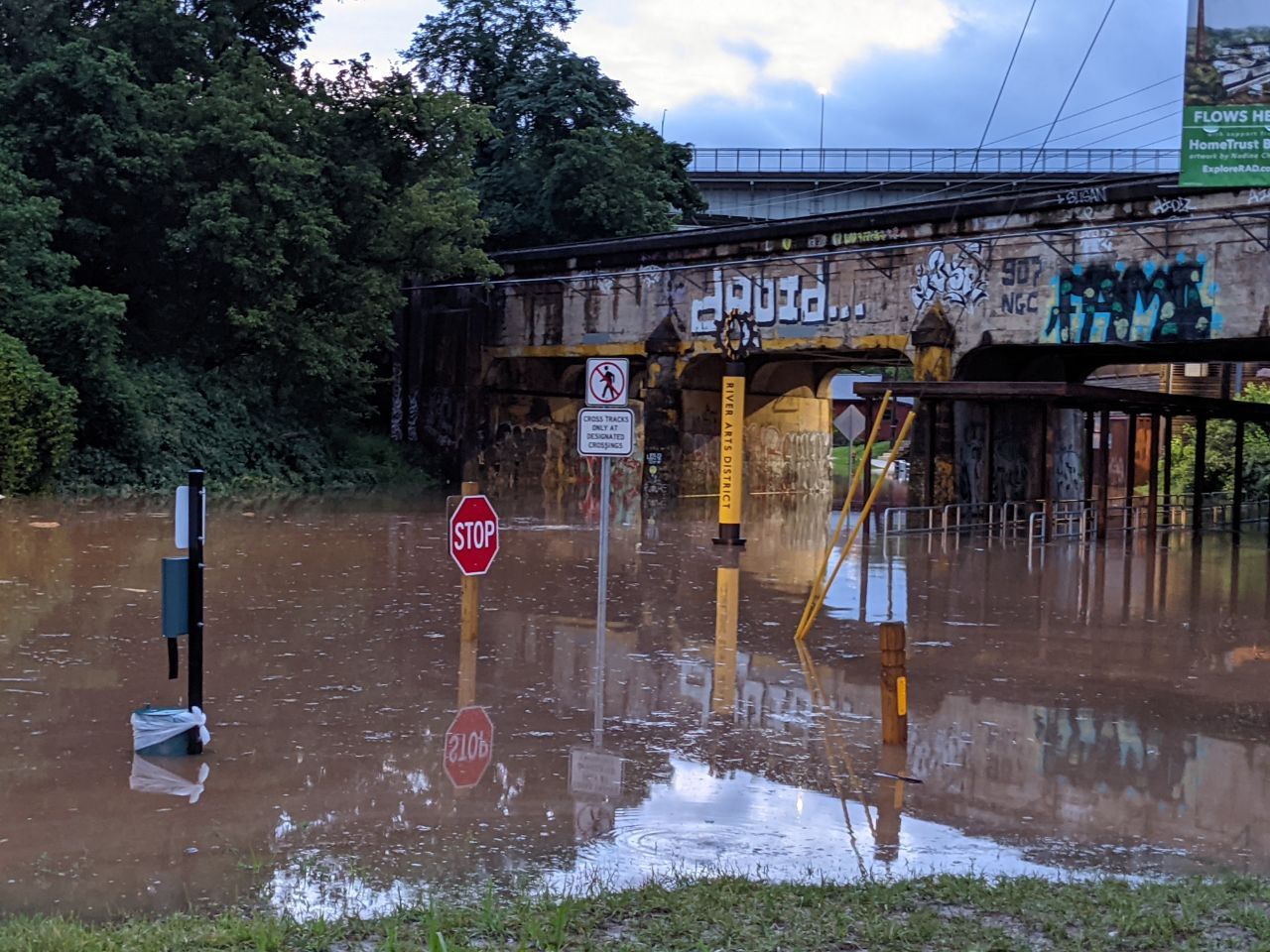When it comes to New Belgium Asheville flooding, it's not just another environmental issue; it's a story that touches the heart of the community, the brewery, and the environment. Imagine a place where craft beer meets nature, but then nature strikes back with floods. This is exactly what happened, and the impact has been felt far and wide. So, buckle up, because we're diving deep into the world of New Belgium Asheville flooding and how it's shaping the future of sustainable brewing.
You know those moments when you least expect it, and bam! Something unexpected happens. That's exactly what happened in Asheville, where the New Belgium brewery found itself in the middle of a flooding crisis. It's not just about water rising; it's about understanding how a major brewery can adapt to such challenges while staying true to its eco-friendly mission.
Now, why should you care? Well, this isn't just about one brewery. It's about the ripple effect that flooding has on local businesses, the environment, and the people who call Asheville home. Stick around, because we're about to break it all down in a way that'll make you think twice about climate change and sustainable practices.
Read also:Jay Ryan The Rising Star Redefining Hollywoods Landscape
Understanding the New Belgium Asheville Flooding Crisis
What Happened?
Let's rewind to the moment it all started. The New Belgium brewery in Asheville, a place where creativity flows as freely as their world-class beers, faced an unexpected adversary: water. But not the kind they use to brew beer. No, this was a deluge that threatened their operations and the surrounding ecosystem. The flooding in Asheville was no ordinary rainstorm; it was a stark reminder of how climate change is altering the landscape of even the most picturesque towns.
So, what exactly went down? Heavy rains overwhelmed the drainage systems, causing water levels to rise dramatically. The French Broad River, a key feature of the area, swelled beyond its banks, affecting not only the brewery but also nearby neighborhoods and businesses. This wasn't just a local issue; it was a wake-up call for everyone who values sustainable living and responsible business practices.
Why Does This Matter?
Here's the thing: New Belgium isn't just any brewery. They're a leader in sustainable brewing practices, and their commitment to the environment is legendary. When a company like this faces a flooding crisis, it's more than just a business problem. It's a test of their values and a challenge to their mission. The flooding in Asheville put a spotlight on how even the most eco-conscious businesses can be vulnerable to the forces of nature.
But it's not all doom and gloom. This crisis also presented an opportunity for New Belgium to innovate and lead by example. By addressing the flooding issue head-on, they've shown that sustainability isn't just about what you do when things are going well; it's about how you respond when the going gets tough.
Impact on the Community
The flooding in Asheville wasn't just a problem for New Belgium; it was a community-wide challenge. Local residents faced disruptions in their daily lives, with roads flooded and homes damaged. Businesses, big and small, had to adapt to the new reality of living with the threat of rising water levels. This created a unique opportunity for collaboration between the brewery and the community to find solutions that benefit everyone.
New Belgium, being the socially responsible company they are, stepped up to support their neighbors. They organized cleanup efforts, provided resources, and even helped fund projects aimed at preventing future floods. This kind of community engagement isn't just good PR; it's a reflection of their core values and commitment to making a positive impact.
Read also:Amanda Peterson The Rising Star Whos Captivating Hearts Worldwide
Environmental Consequences
How Flooding Affects the Ecosystem
Flooding isn't just about water covering the land; it has far-reaching effects on the environment. The French Broad River, which plays a crucial role in the local ecosystem, was altered by the floodwaters. Fish habitats were disrupted, water quality suffered, and native plants were damaged. This is where New Belgium's expertise in environmental stewardship came into play.
By working with local conservation groups, the brewery helped restore the river's natural balance. They implemented measures to improve water quality and protect wildlife, showing that even in the face of adversity, there's always a way to make things better. This kind of proactive approach is what sets New Belgium apart from other companies.
Long-Term Effects
But the story doesn't end there. The long-term effects of flooding can be just as significant as the immediate impact. Soil erosion, loss of biodiversity, and changes in water flow can have lasting consequences on the environment. That's why New Belgium is committed to ongoing efforts to mitigate these effects and ensure that the ecosystem remains healthy for future generations.
Through partnerships with scientists and environmental experts, they're exploring innovative solutions to address these challenges. This includes everything from planting native vegetation to implementing advanced water management systems. It's a comprehensive approach that tackles the root causes of flooding and promotes sustainable development.
Economic Implications
Let's talk money for a second. The economic impact of the New Belgium Asheville flooding was significant, affecting not only the brewery but also the local economy as a whole. Tourism, a major contributor to Asheville's economy, took a hit as visitors stayed away due to the flooding. This ripple effect was felt by hotels, restaurants, and other businesses that rely on tourism dollars.
But here's the kicker: New Belgium didn't just sit back and watch the economy suffer. They took action by investing in the community and supporting local businesses. By doing so, they helped stabilize the economy and set an example for other companies facing similar challenges. This kind of leadership is what makes New Belgium a true force for good in the business world.
Solutions and Innovations
What New Belgium Is Doing
When it comes to solving the flooding problem, New Belgium isn't messing around. They've implemented a range of solutions designed to prevent future floods and mitigate their impact. From building flood barriers to improving drainage systems, they're taking a proactive approach to protect their operations and the surrounding environment.
One of the most exciting innovations is their use of green infrastructure. By incorporating natural elements like wetlands and rain gardens into their property, they're creating a more resilient landscape that can absorb excess water during heavy rains. This not only reduces the risk of flooding but also enhances the local ecosystem.
Community Involvement
But it's not all about technology and infrastructure. Community involvement is key to addressing the flooding issue in Asheville. New Belgium has worked closely with local residents, businesses, and government agencies to develop a comprehensive plan for flood prevention and response. This collaborative approach ensures that everyone has a say in shaping the future of their community.
Through workshops, public meetings, and volunteer opportunities, they've engaged the community in finding solutions that work for everyone. This kind of grassroots effort is what makes the difference between a temporary fix and a lasting solution.
Lessons Learned
So, what can we learn from the New Belgium Asheville flooding crisis? For starters, it's a reminder that even the best-laid plans can be disrupted by the forces of nature. But it's also a testament to the power of resilience, innovation, and community spirit. By facing the challenge head-on, New Belgium has shown that it's possible to turn a crisis into an opportunity for growth and improvement.
One of the key takeaways is the importance of sustainability in all aspects of business. Whether it's brewing beer or managing natural resources, a commitment to the environment pays off in the long run. This lesson extends beyond Asheville and applies to businesses and communities around the world facing similar challenges.
The Future of Sustainable Brewing
Looking ahead, the future of sustainable brewing is bright, thanks to companies like New Belgium. By addressing the flooding issue and implementing innovative solutions, they're setting a new standard for what it means to be a responsible business. This includes everything from reducing water usage to investing in renewable energy sources.
As the brewing industry continues to evolve, the lessons learned from the Asheville flooding crisis will undoubtedly shape the way companies approach sustainability. It's a reminder that the choices we make today will have a lasting impact on the world tomorrow. And with companies like New Belgium leading the way, the future looks promising indeed.
Call to Action
So, what can you do to support the efforts of New Belgium and other companies committed to sustainability? Start by making conscious choices in your own life. Whether it's reducing your carbon footprint, supporting eco-friendly businesses, or getting involved in community initiatives, every action counts.
And don't forget to share this article with your friends and family. The more people who are aware of the challenges facing our planet, the better equipped we'll be to address them. Together, we can create a brighter, more sustainable future for everyone.
Final Thoughts
In conclusion, the New Belgium Asheville flooding crisis is more than just a local issue; it's a global reminder of the importance of sustainability and resilience. By addressing the challenges head-on and working collaboratively with the community, New Belgium has shown that it's possible to overcome even the toughest obstacles. As we move forward, let's take inspiration from their example and strive to make a positive impact in our own lives and communities.
Table of Contents


